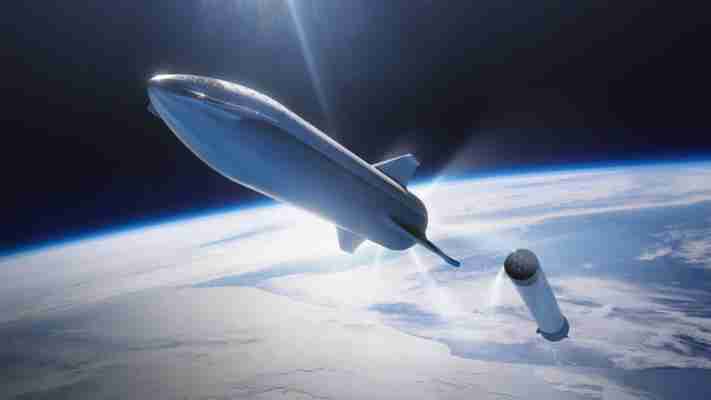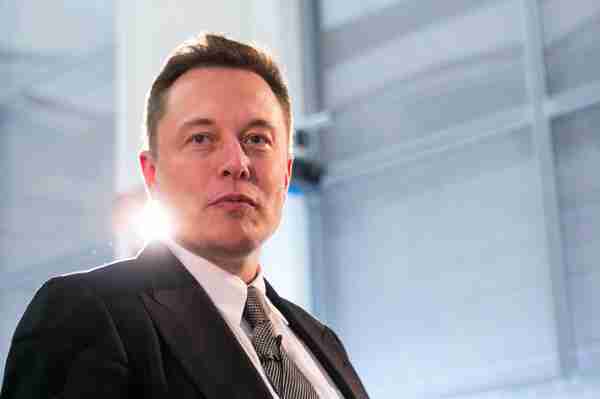It’s been a great year for space travel.

Early this year, after President Trump signed the Omnibus Bill, NASA miraculously received $20.7 billion, the highest amount since the 2009 stimulus package. The Trump Administration’s proposed 2018 budget was seen by many as a “War on Science,” but when the bill was actually voted on most of NASA’s budgets were increased or remained uncut, shocking the scientific community. This is surprising as Republican senators have historically been opposed to climate and earth-based research, some of which is carried out by NASA.
After a few decades of budget cuts and stagnation, NASA’s revitalized budget has caused much celebration. However, for many years it looked like NASA had been all but abandoned by the federal government. This drought led various entrepreneurs (mostly billionaires who established their fortune in other industries) to create their own private space companies.
The goal of these private space companies is to greatly reduce the cost of space travel , making it viable and realistic to achieve lofty goals such as colonizing the moon and Mars. This new private space industry, dubbed NewSpace, is high-profile, brutally competitive, and utterly fascinating.
Here are some of the top players in NewSpace right now:
Elon Musk

Elon Musk is easily the most high-profile player in NewSpace. In 2002, the PayPal co-founder used his enormous wealth to fund SpaceX , of which he is the lead designer and CEO. Though his eccentricities and hasty Twitter fingers have often led him in hot water, Musk has nonetheless become the face of NewSpace. Musk famously has extremely high ambitions for SpaceX, with plans for the colonization of Mars within his lifetime.

Take a look at Elon Musk’s crazy new spaceship
SpaceX has had a number of high-profile rocket launches, with its most famous being the Falcon series of rockets. Notably, SpaceX is currently working on its BFR (Big Falcon Rocket or Big F***ing Rocket) series of spacecraft, which will allow rockets to be reused and relanded automatically instead of being discarded. This would dramatically reduce costs for space flight missions, a stated goal of Musk and SpaceX.
SpaceX has scored a recent string of victories, including a successful Falcon launch for an Argentine satellite, establishing contracts with the U.S. government to send astronauts up to the International Space Station, and his collaboration with Japanese billionaire Yusaku Maezawa for the #dearmoon artistic lunar tourism mission.
Watch Elon Musk’s new rocket light up the California sky
Jeff Bezos
Amazon founder and CEO Jeff Bezos is currently the richest person in the world, with a net worth of over $150 billion. He formed the private space company Blue Origin in 2000 as a response to what he saw as government negligence to space travel. The company has a troubled history of fabled launches, though fortunately for it Bezos has more than enough money to keep it afloat.
Blue Origin is notably both less flamboyant and more secretive than SpaceX. Despite this, the two companies share a heated rivalry categorized by legal disputes and Twitter flame wars. Like its rival, Blue Origin has been slowly gaining more valuable government contracts and security clearances. Blue Origin’s current main goal is to create affordable sub-orbital space tourism. Tickets are going on sale next year for the low, low price of $300,000. In the future, Bezos has said that establishing a permanent Moon colony is Blue Origin’s ultimate goal.
Yuri Millner
Russian dot-com billionaire Yuri Millner launched Breakthrough Initiatives in 2015. While he plays a part in NewSpace, BI’s goals are decidedly different from both SpaceX and Blue Origin. Instead of looking to reduce the cost of space travel, Breakthrough Initiative’s goal is to find and make contact with extraterrestrial intelligent life.
Breakthrough Initiative is comprised of three main departments: Breakthrough Listen, Breakthrough Message, and Breakthrough Starshot. Breakthrough Listen utilizes various observatories to listen for “radio and laser signals from the nearest million stars, the nearest 100 galaxies, and the plane and center of the Milky Way.” Over $100 million is being invested in Listen over the next 10 years.
Breakthrough Message offers a million dollar prize for people to submit messages that would be transmitted to alien civilizations. Whichever messages win, there would be an international panel that votes on whether the messages are both ethical and properly represent humanity. Lastly, Breakthrough Starshot is a project that would utilize light sails traveling at 20% the speed of light in order to reach Alpha Centauri, a journey that would take 20 years of travel plus an additional 4 years to transmit a message back to Earth.
What do you think about all of the people and companies mentioned? Do you think they’ll be able to accomplish their goals? Let us know!